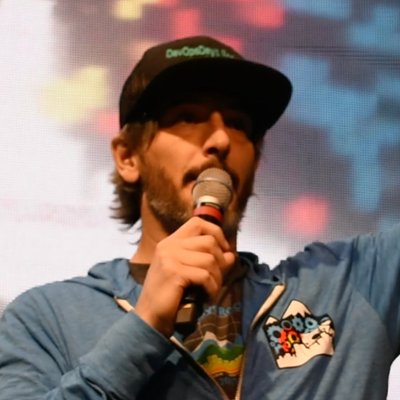Presentation: The Trouble With Learning in Complex Systems
This presentation is now available to view on InfoQ.com
Watch video with transcriptAbstract
The complexity of technology we actively design, build, and operate has eclipsed our ability to fully comprehend them. When continuous change is at the heart of our most precious systems, how do we balance protecting them while simultaneously improving the people and processes tied to making our tech more useful and valuable to end users as well as the business? A strong focus on learning as much about the system as possible is our best course of action, but learning requires both success and failure.
In this talk, we’ll explore the challenges with learning in complex systems, the relationship between high and low stakes learning opportunities as well as the cost associated. Audience members will gain exposure to ideas and techniques to help to improve operational knowledge as well as mental models associated with our ever increasingly complex systems.
By adapting to new methods of learning and creating space for more of our systems to be knowable, teams can remove the mask of process from our past to unveil a clearer view of the future.
What is the focus of your work today?
As a cloud advocate for Microsoft, I focus my efforts on coaching and mentoring technical organizations on managing IT in a cloud world. The area I focus on the most is around building resilient systems through modern incident management and retrospective analysis.
What’s the motivation for this talk?
Microsoft has given me the amazing opportunity to work with people all over the world. One thing I've noticed is that words that are commonly used in our industry don't have a common understanding or worse, are never examined for meaning. One such example is "complex systems", a term that is used very often within the tech industry. Despite this, when asked to define a complex system, the most important elements are rarely described. My hope is to begin to bring our community together on the reality of complex systems.
How would you describe the persona and level of the target audience?
Senior IT Operations, System Administrators, and leadership. Although technical conceptually, this talk is less about technology and more about how people manage complexity especially in high stakes situations where opportunity for learning and improving are rare.
What do you want this persona to walk away from your talk with?
I'd like audience members to walk away with a more holistic understanding of complex systems and how to apply new methods of discovery and observability.
Armed with simple examples and language, perhaps we can all begin to build safer and more resilient systems.
What do you feel is the most important trend in software right now?
Serverless seems to be the most talked about technology currently. Followed by artificial intelligence and machine learning. Within the advocacy group there's always a lot of discussion and focus on helping people understand what "serverless" actually means and how it can be used to solve specific problems.
Similar Talks
Scaling DB Access for Billions of Queries Per Day @PayPal

Software Engineer @PayPal
Petrica Voicu
Psychologically Safe Process Evolution in a Flat Structure

Director of Software Development @Hunter_Ind
Christopher Lucian
PID Loops and the Art of Keeping Systems Stable

Senior Principal Engineer @awscloud
Colm MacCárthaigh
Are We Really Cloud-Native?

Director of Technology @Luminis_eu
Bert Ertman
Cultivating High-Performing Teams in Hypergrowth

Chief Scientist @n26
Patrick Kua
Inside Job: How to Build Great Teams Within a Legacy Organization?

Engineering Director @Meetup
Francisco Trindade
Scaling Infrastructure Engineering at Slack

Senior Director of Infrastructure Engineering @Slack
Julia Grace
Liberating Structures @CapitalOne

Agile Coach, Engineering @CapitalOne
Greg Myers
Self-Selection for Resilience and Better Culture

Agile/DevOps Trainer & Founder of Agile Play Consulting, LLC
